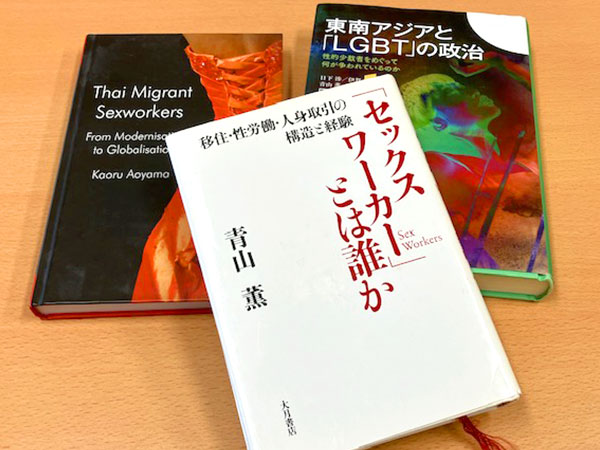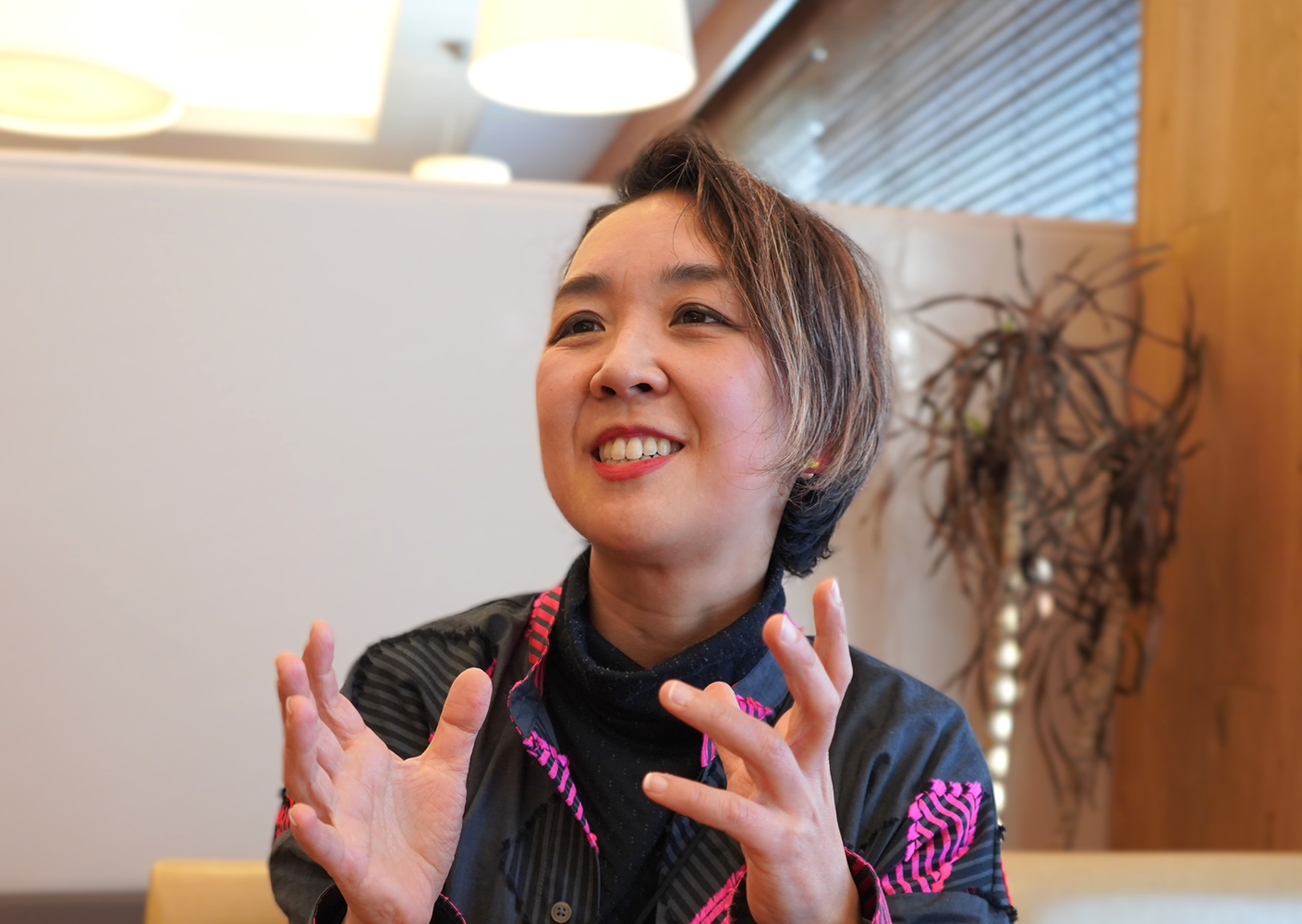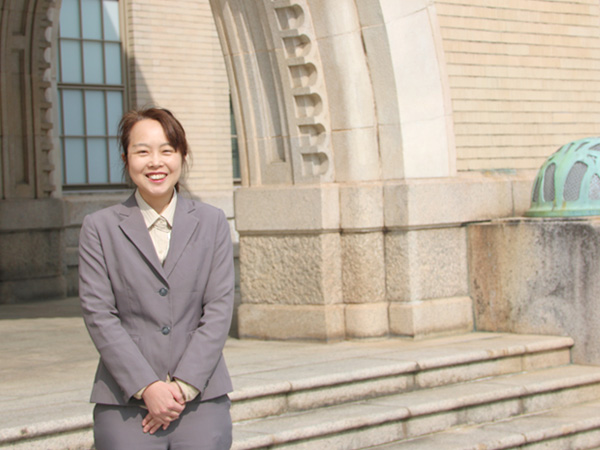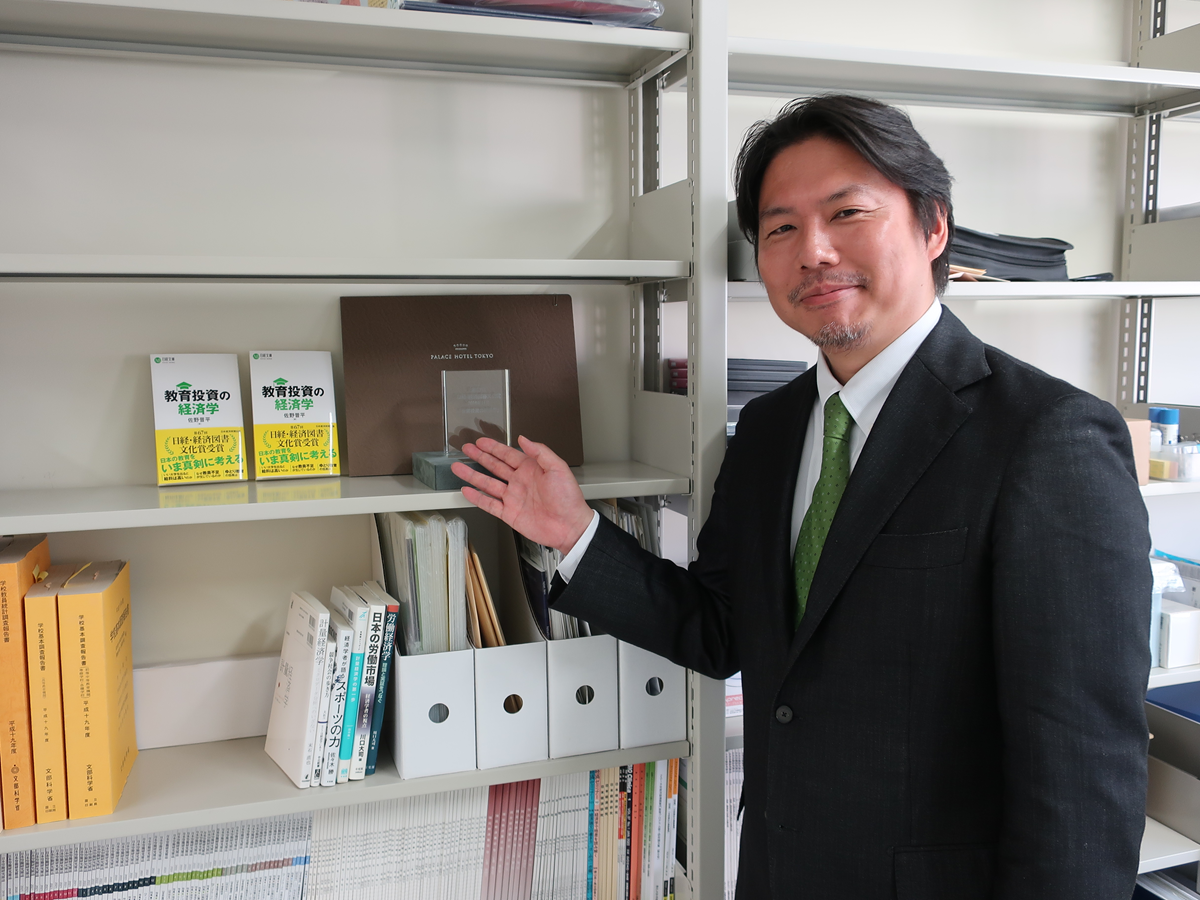In the fields of social sciences and humanities, the relationship between researcher and subject is key. Professor Kaoru Aoyama (Graduate School of Intercultural Studies) studies the issues surrounding sex workers, sexual minorities, human trafficking and migration, focusing on the relationship between systematic discrimination and individuals’ rights to self-determination. Sparking debate with her perspective on the regulations surrounding prostitution and coerced appearances in pornographic videos, she calls for policies that can change the circumstances of the socially disadvantaged among us.
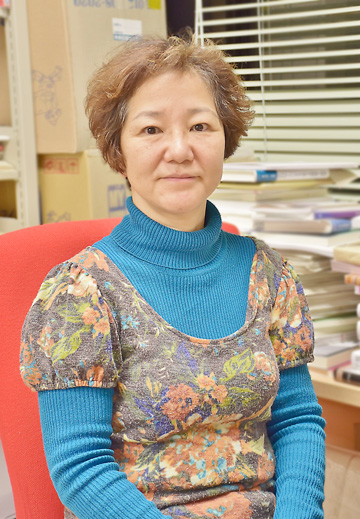
Prof. Aoyama:
I began by studying the relationship between gender, the north-south divide and the poverty gap at the University of Warwick master’s course on “Gender and International Development”. Deciding to make use of my Japanese language skills, in the summer break I returned to Japan and volunteered at the non-profit Asia-Japan Women’s Resource Center in Tokyo. I helped Thai women who had committed murder after being forced to work in Japan’s sex industry. Since then, I have been researching sex workers, human trafficking and migration. I graduated from the Faculty of Social Sciences at the University of Essex, and published my doctoral dissertation in Japan and English (English title: Thai Migrant Sex Workers from Modernisation to Globalisation, Palgrave/Macmillan, 2009). While carrying out surveys and research on the sex industry, I became strongly aware that it wasn’t enough just to listen to each person’s story. Our research should aim to improve these people’s lives.
When studying people in poverty, victims of natural disasters or crimes, and minority issues, academics and student are often asked the difficult question “What is the purpose of your research and who will it benefit?”
Prof. Aoyama:
At the start of my research I was told by sex workers in Japan, Thailand, and the United Kingdom, “If you write a dissertation, get your doctoral degree, and you’re the only one who benefits from this, that’s exploitation”. I entered this field via social activism, and I pursued it further because there were aspects I couldn’t understand through activism alone, but writing a dissertation didn’t help the people I was studying. I realized that I wanted to be useful to them as a researcher. So I began to initiate subject-participant surveys in Japan, where researchers and their subjects work together to carry out the survey. I made a lot of mistakes. I asked my subjects to work with me at every stage, from setting the research goals and methods, to the survey and the discussion. The research process is a dialogue - they give me feedback on the results, and I brush up my methods based on their criticism. The people with the best understanding of the sex industry are those who work within it. I try to build relationships where I can help them and be useful as a researcher.
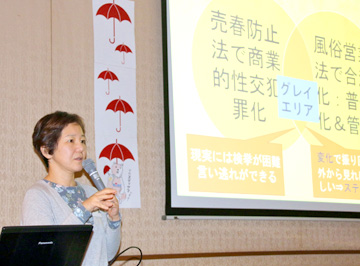
You’re calling for prostitution to be decriminalized.
Prof. Aoyama:
In Japan, women who sell sex are heavily stigmatized. There are various reasons for this, starting with the system of monogamous marriage as the pivot of our model for sex, but the anti-prostitution law that makes sex work illegal is a big factor. The fact that this law only targets women as people in danger of selling sex just makes the stigma stronger.
Other types of adult entertainment are permitted under the Act Regulating Adult Entertainment Business. Prostitution also takes place within these legalized businesses, and for better or worse it is overlooked. But the Act Regulating Adult Entertainment Businesses was created to protect so-called public order and morality – it does not aim to protect the rights of people who work in that sphere. In many cases there are no official employment contracts in the adult entertainment industry, and few workers are protected under labor laws. Most sex workers cannot “come out” because of the stigma of prostitution, and are thus unable to ensure their rights as employees.
Because of this, when sex workers fall victim to unfair wages, violent treatment, or nonconsensual sexual acts (rape), it is very hard for them to ask for help. If it is revealed that they engaged in prostitution, they become criminals despite being victims. And for foreign sex workers employed in Japan, their work falls outside the legislation of the Immigration Control Law. This makes it practically impossible for them to come out as victims without putting themselves in a disadvantageous position.
Many feminists have been involved in prostitution abolition movements for decades. However, their good intentions end up strengthening the stigma around this work. Their demands that “We must get rid of this work”, “Stop doing it”, will not erase the discrimination against sex work, and it will not help the people who are trying to overcome personal difficulties while engaged in prostitution.
It is very important for people working in the sex industry to be able to ensure their day-to-day health and safety and receive support when they are in trouble. This is why I want us to rethink the methods of control and criminalization of prostitution. In 2015, the international NGO Amnesty International announced their policy of decriminalizing consensual prostitution for the same reasons.
What is the status of prostitution internationally?
Prof. Aoyama:
New Zealand is the only country that has fully decriminalized the buying and selling of sex. In the Australian state of New South Wales, there are some areas where it is decriminalized. There are many countries and areas such as Germany, Holland, and the state of Nevada in the USA, where prostitution is “legalized”. This means that the government regulates buying and selling of sex in certain places and forms, and everything that falls outside these limitations is illegal.
Ideally, sex work between consenting adults in Japan would be regulated just like other service industries, under general laws such as the commercial law and the Industrial Safety and Health Act. This would be decriminalization in the style of New Zealand, which has hardly any special laws for prostitution. But right now in Japan the Act Regulating Adult Entertainment Businesses provides partial protection for some people, so we should not get rid of it straight away.
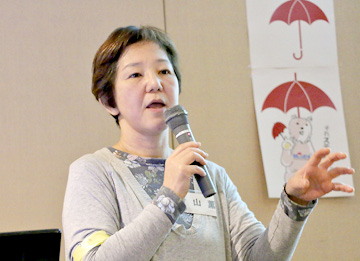
There are cases of women in Japan told they were being scouted for modelling, tricked into signing a contract, and then forced to appear in pornographic videos. This has led to a debate on tightening regulations, but you are opposed to legal regulations. Why is this?
Prof. Aoyama:
In March 2016, the organization Human Rights Now published a survey on Japanese women who were scouted and agreed to work as “models”, then forced to appear in pornographic videos. They suggested that the government should create a new law that regulates adult videos. However, firstly there is the issue that the survey this report was based on is biased. I think this bias led to a flaw in the organization’s suggestion. The pornographic video industry is a large industry, and the opinions of the people working within that industry were not reflected at all in the survey or reports made by Human Rights Now. If we make new regulations that target the industry without listening to voices from within the industry itself, we cannot expect these regulations to be workable, and on top of that we will make enemies of the people who choose to work in that sphere. It will make it harder for people who work in that industry to receive support if they become victims. This is the same situation as prostitution.
I’m not saying that we do not need any regulation. In order to create policies that can protect both current and future workers in the adult video industry, first we must identify the aspects of the industry that are linked to violations of human rights. To do this we undeniably require cooperation from within this industry. A movement that could be called “self-purification” has already started inside the industry, and there is cooperation between groups of actors, makers, creators, and third parties such as lawyers and academic experts. To prevent violations of human rights such as coercing appearances, the industry is voluntarily engaging in spontaneous projects such as unifying contracts and creating distribution routes for materials.
You also talk about LGBT (Lesbian, Gay, Bisexual and Transgender) issues.
I myself was married to a man, but my current partner is a British woman. Before I was married and for much of my married life I always thought of myself as straight, but that changed later. Now gender is not relevant for me when it comes to attraction. As well as presentations at conferences and submitting papers, I also give lectures at to groups, such as legal organizations, and talk about my own experiences too.
I am happy that sexual diversity is recognized, but there is a tendency in educational institutions and the mass media to talk about LGBT as a single category. I think this is a big problem. Lesbian, gay, bisexual and transgender identities are each just one small part of sex and gender. The problems they have and the difficulties they face living in society are different for each group, but when they are lumped together the locus of these problems cannot be identified. For example, people who are transgender may experience discrimination when job hunting because their appearance is different from the gender in their public records, and it is often hard for them to find employment. They also face serious problems with mental and physical violence and bullying.
There is also a large gap between individuals who identify as lesbian or gay. Basically, it’s a gender issue. In Japan, women (including part-time employees) earn 60% of men’s salaries, so a female couple will often find themselves in economic difficulties compared to a male couple. And the people who research LGBT issues, their subjects, and the public representatives of LGBT social activism are overwhelmingly gay men.
The media, and unfortunately educational institutions as well, only tend to show examples of extreme cases of LGBT people: those who are suffering and facing problems because of their LGBT status, or those who are very successful and active. Right now, even though we talk about LGBT people, they are still not perceived as being part of our everyday lives and living in our neighborhoods.
Speaking in broad terms, for both sex workers and for people who identify as LGBT, the problem is not with the minority but with the social majority. If the majority applies its one-sided norms, knowledge, and information, even judgements made with good intentions and empathy will not make the problems go away. I think we need an intelligent movement that will encompass the majority to change the whole system.
Professor Aoyama is a member of the Women’s Studies Association of Japan, the Japan Sociological Society, and the British Sociological Association.





